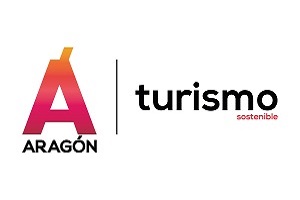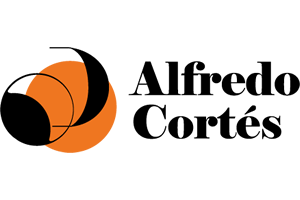Carlos Mangado is an expert in sports marketing and sponsorship. He has participated in the organization of international events and collaborates with different companies in the sector. He also organizes training plans and is a speaker at numerous forums and conferences. On June 2 he will give a talk as part of Media Content Day 21 (#MCDay21).
Carlos, you are a leading figure in sports marketing and event organization, how would you summarize your career so far?
Summarizing 31 years of profession is complicated, but fundamentally in two words: work and passion. I think that’s what defines what I’ve done over the years and what, in a way, characterizes what I’ve been able to organize, what I’ve been able to do.
In fact, you have always said that you have turned your passion into your profession. Do you think that in a field like marketing you can get to the top if there is no passion?
You can probably get very high, what I am not sure about is that you will enjoy what you are doing. This is fundamentally a creative sector, and when you work with creativity and passion you have fun. If you don’t work with passion, I think you have less fun. If you are able to combine both things, passion and design, you will certainly have fun throughout your career and you can achieve important things. Illusion and passion are a fundamental part of my work.
In these 31 years of your career, what milestones are you especially proud of?
First and foremost, of having been able to create a profession out of my passion, because from an academic point of view, I have not studied anything related to this sector. I have a degree in Philosophy and Letters and in Political Science, and someone might think “What does this have to do with what you have done afterwards? The truth is that it has little to do with it, but in these 31 years I have learned a lot.
And secondly, from the work point of view, I have had the opportunity to design and execute very important activities that, with effort and work, have become a reality. I always point out that organizing what was called the San Fermin Formula 1 is a very important milestone. To have two drivers and two Formula 1 cars, a Red Bull and a Toro Rosso, in Pamplona doing a running of the bulls seems to me to be a really important thing. From the point of view of design, execution, work, creativity, it’s probably the most complex thing I’ve ever done. The most complex and not the most difficult, because I always say that organizing something is not difficult, it is complex.

In your presentation at MCDay you are going to talk about the mistakes that should not be made when organizing an event, can you tell us something ahead of time?
For me there is a fundamental mistake: not having time to imagine things. If a client or we ourselves, when we are going to organize something from the office, do not spend much time imagining how we want to do things, or our client does not let us imagine with him how he wants things, we prefer not to do them.
Organizing something is very simple, it is a matter of having good suppliers and knowing at what point each one has to provide the services for the event to be executed or the experience to be developed. Yes, but if we don’t have an idea, that is, if we don’t spend time imagining how we want to do things, we don’t need suppliers at all, we don’t need any kind of subsequent process. One of the most important mistakes that are made is not spending time imagining how you want to do things.
And how have you had to imagine those things during the pandemic? How has communication had to adapt to this situation?
For me there is one very important thing, the first thing: to think permanently that the world was going to go on, maybe in a different way, but it was necessary to adapt to that other way. Maybe what I am going to say is a bit vain, but I think I have a very important capacity to adapt. When I see other people permanently complaining that everything is problems and they are not capable of facing those problems by imagining and developing that creativity that we all have to do things differently, well, the truth is that I get a bit embarrassed.
How have we been doing it? By looking at the tools we were going to have on the market, the tools we could imagine and applying them to a new format. In fact, in my presentation I will show a couple of very interesting slides of how we organized in a facility that can hold 10,000 people the first physical, face-to-face corporate event that was organized in Navarra in January, after the pandemic. And I will comment briefly on how we executed it, fundamentally thinking that the people who were going to attend, who were representatives of the 60 or 70 most important companies in Navarre, not only had security, but also felt security, which is an emotional issue. Not only am I going to a facility where I know I will be safe, but I am going to feel that security.
You have to keep doing things differently, and where is the problem? Well, in knowing how to do them differently.
And events like this #MCDay21 will serve to share these new ways of doing things.
No doubt about it. For me, everything that involves sharing knowledge, experiences, debating about it not only seems fundamental, but I love to do it. Sometimes, when I participate in forums, I am told that I share too much information or talk too much about how I do things. I have no problem with that, mainly because I defend to the death something I once heard: that doing is not the same as knowing how to do, which everyone does, as opposed to knowing how to do. And I believe that we know how to do, and we know how to apply in each moment to each activity and event a different nuance that makes it different from the previous one and from the next one. So we are going to share this way of doing things and I am delighted to go there and debate with other colleagues about it.
The organization and marketing of sporting events have the advantage of being associated with passion, which is an intangible that attracts a lot.
Undoubtedly, everything that is passionate makes the activities and events that you are going to organize have a plus advantage. Obviously, it also depends on the disciplines; there are some that are more passionate and others that are less passionate. But undoubtedly that passion, that experience that is easy to get in the world of sporting events, makes it easier for you to design and execute activities and events in a different way.
But what has to distinguish those of us who are dedicated to this sector is to dedicate time to imagine, to dedicate time to dream, in some way. When we present an activity to a client, we almost ask them to close their eyes and we tell them how we want it to be done so that they can experience it directly, feel it, understand it and then, if they find it interesting, carry it out. But undoubtedly, as you were saying, sporting events have a passionate side that facilitates all this.
And on the other side of the scale, that passion can also play against. Recently, for example, the project of a soccer Super League failed because the fan base rose up against the idea. Could things have been done better in terms of communicating that project, or wasn’t that the problem that caused, at the very least, its paralysis?
The truth is that I believe that the Superliga will come sooner or later. But perhaps the way it was communicated was not the most appropriate from my point of view. I am convinced that the biggest clubs in Europe will unite, I don’t know if in a Super League or in a new model of Champions League, but all the agents involved in this business will have to sit down so that the competitions are organized in a different way.
You are from Navarre, we are practically neighbors. Have you had the opportunity to visit Aragon?
Of course! I go to Zaragoza a lot, I have relatives there and I love it. It’s a great city where I also have many friends.

You have collaborated in many international sporting events, do you think Aragon has the potential to host such events?
Zaragoza is a reference in the world of sporting events. The Príncipe Felipe is a reference facility for all of us who are dedicated to this sector, and I believe that the city, since the pavilion was inaugurated, has had events of the highest level. Zaragoza and Príncipe Felipe have been marked with golden letters throughout all these years.
And the MotoGP World Championship has also positioned Teruel in the world. Although it was already well known in the world of motor racing, Alcañiz was one of the few urban circuits that still existed. Aragon in general, for those of us who are dedicated to this, has always been a reference.














